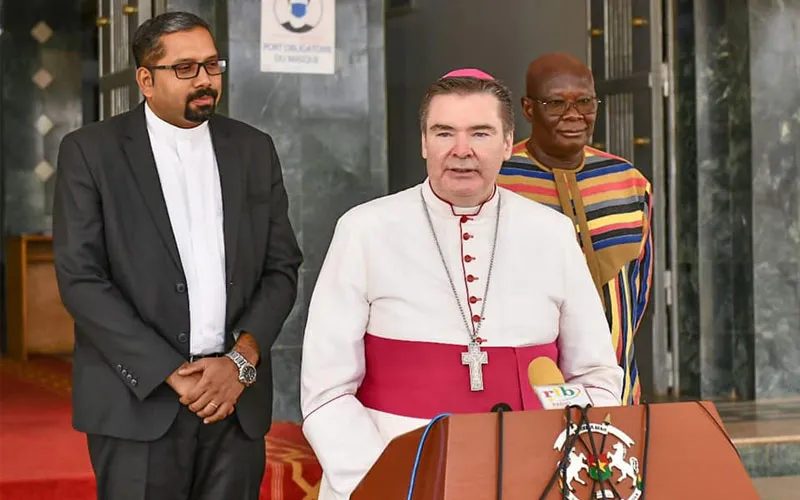In January, Catholic Bishops in Burkina Faso expressed their awareness of the country’s political changes and called upon those who spearheaded the coup d’etat to be at the service of the people.
On March 3, Col. Damiba named a 25-member government to lead the West African country during a three-year transitional leadership following January's coup with Mr. Ouédraogo appointed Prime Minister.
"I call on all Burkinabe from all walks of life to support the new government in these difficult times that our country is going through and in the implementation of this vision of change that the President of Burkina Faso wants to give impetus to overall governance," the Prime minister said.
Alongside other eight countries that constitute the Sahel region, Burkina Faso has endured a resurgence of violence from extremists, “much of it carried out by jihadists linked to Al Qaeda and the Islamic State,” the New York Times reported last year.
Known to have been one of West Africa’s most stable countries, the country seems to have “been trapped in spiraling violence since jihadist groups claimed their first attacks, in 2015. Since then, the country has faced hundreds of attacks, some carried out by jihadist groups and others by local rebels,” the New York Times further indicated in the 5 June 2021 report.
Speaking to journalists about the objective of the March 31 audience with Burkina Faso’s Prime Minister, Archbishop Crotty said, “I came to congratulate the Prime Minister on his appointment. It was an opportunity for me to represent the Holy Father Pope Francis.”
“Today was the first time I had the opportunity to meet the Prime Minister. I first conveyed to him the prayers of the Holy Father Pope Francis, who prays for all Burkinabe, all communities,” the Irish-born Apostolic Nuncio said.
Commenting on the insecurity situation in the West African nation, the Catholic Church diplomat who was appointed Apostolic Nuncio to Burkina Faso in February 2020 said, “The last few years have been marked by violence and insecurity.”
“We hope that all Burkinabè will work together to respond to this insecurity,” the 52-year-old Archbishop said.
He added, “The Vatican remains a partner of Burkina Faso, which since 2015 is going through an unprecedented security crisis.”








